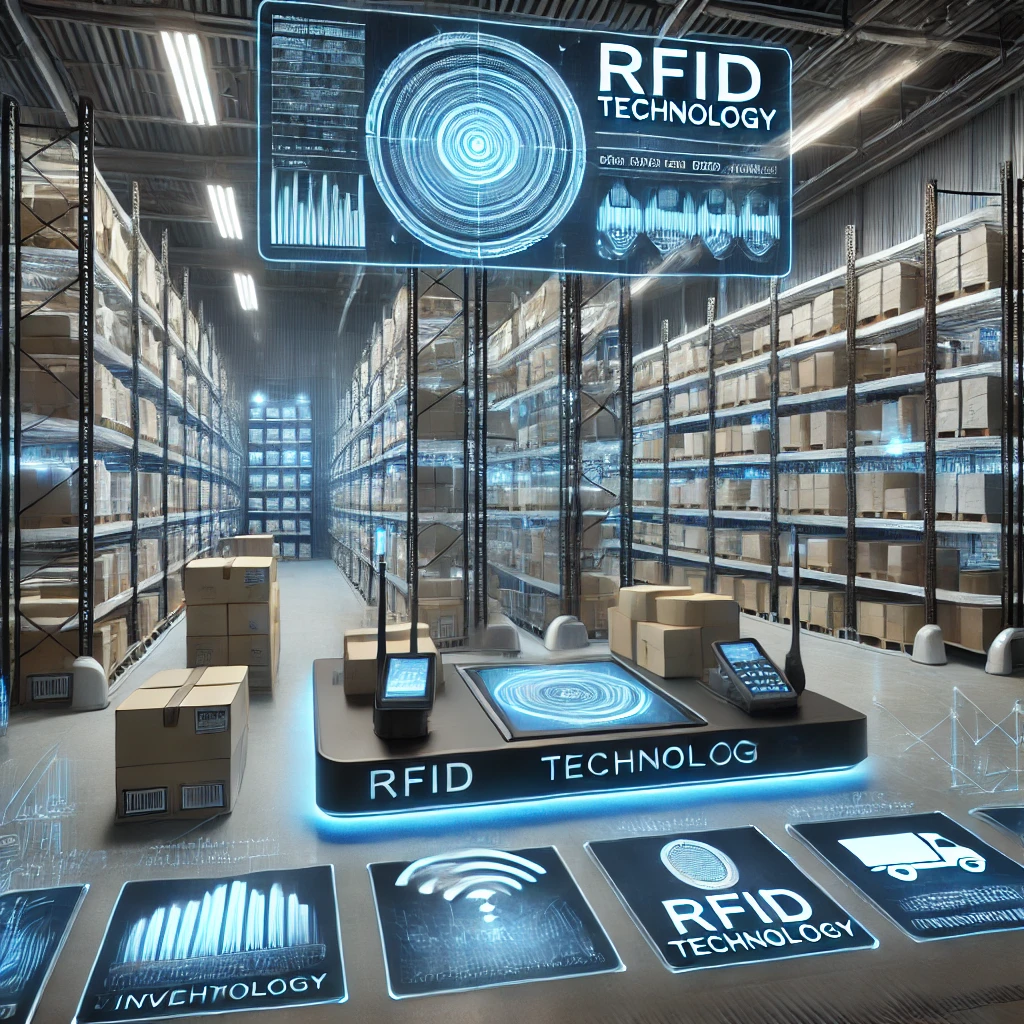
As businesses continue to evolve in a highly competitive environment, effective inventory management has become essential for maintaining efficiency and reducing costs. Traditional tracking methods often fall short, leading to errors, delays, and lost revenue. RFID technology is revolutionizing inventory management by enabling real-time tracking, automation, and data-driven decision-making. Looking ahead to 2025 and beyond, RFID is expected to become even more advanced, integrating with emerging technologies like AI and IoT to optimize operations, improve accuracy, and enhance overall supply chain management. Let’s explore the key trends shaping the future of RFID technology.
1. Smarter and More Advanced RFID Tags
The next generation of RFID tags will offer enhanced functionalities, including greater data storage, extended read ranges, and improved durability. Smart RFID tags will integrate with AI-driven systems to provide real-time insights into inventory levels, movements, and demand forecasting. Businesses will see a major reduction in human errors, ensuring seamless stock replenishment.
2. Integration of RFID with IoT and AI
The fusion of RFID for inventory management with the Internet of Things (IoT) and Artificial Intelligence (AI) will be a game-changer. IoT-enabled RFID systems will allow businesses to monitor stock remotely, offering real-time visibility into supply chains. AI-powered analytics will process RFID data, predicting trends, optimizing workflows, and reducing operational inefficiencies.
3. Blockchain for Enhanced Security and Transparency
With security being a top priority, businesses are adopting blockchain technology in RFID systems. Blockchain will create tamper-proof records of inventory transactions, ensuring authenticity and preventing fraud. This is particularly beneficial for industries such as pharmaceuticals, luxury goods, and food supply chains, where product integrity is critical.
4. RFID-Enabled Automation in Warehousing
Warehouse automation is evolving rapidly, and RFID for inventory management is playing a key role. RFID-driven robotic systems will be able to locate, pick, and pack items with greater precision, reducing dependency on manual labor. This will lead to improved efficiency, faster order fulfillment, and lower operational costs.
5. Wearable RFID for Workforce Optimization
Wearable RFID technology is becoming more prevalent, allowing warehouse workers and retail employees to track inventory hands-free. RFID-enabled smart gloves, badges, and wristbands will enhance productivity by reducing scanning time and improving data accuracy. This will also improve employee safety by reducing the need for manual handling of goods.
6. Sustainability and Eco-Friendly RFID Solutions
Sustainability is a growing concern, and RFID technology is adapting to meet environmental goals. The development of biodegradable and recyclable RFID tags will help businesses minimize electronic waste. Additionally, energy-efficient RFID readers and solar-powered tracking systems will contribute to greener inventory management solutions.
7. RFID in Omnichannel Retailing
Retailers are increasingly embracing omnichannel strategies, and RFID for inventory management is facilitating seamless integration across multiple sales channels. With real-time tracking, retailers can provide accurate stock information to customers, improving their shopping experience. RFID-enabled self-checkout systems will also reduce wait times, enhancing customer satisfaction.
8. RFID in Cold Chain and Pharmaceutical Inventory Management
Industries that rely on temperature-sensitive inventory, such as pharmaceuticals and food distribution, will benefit from smart RFID solutions. RFID tags with built-in temperature and humidity sensors will ensure compliance with safety regulations, reducing product spoilage and ensuring quality control.
9. 5G-Powered RFID Systems for Faster Data Processing
With the expansion of 5G networks, RFID for inventory management will experience improved data transmission speeds and reduced latency. Businesses will have access to real-time tracking, instant stock updates, and seamless communication across supply chains, resulting in better decision-making and operational efficiency.
10. RFID as a Service (RFIDaaS)
To make RFID technology more accessible, businesses are adopting RFID-as-a-Service (RFIDaaS) models. This subscription-based approach allows companies to leverage cloud-based RFID solutions without high upfront investments. Small and medium enterprises can now compete with larger organizations by utilizing scalable and cost-effective RFID systems.
The Impact of RFID Advancements on Various Industries
• Retail: Improved inventory accuracy, reduced shrinkage, and enhanced customer experience.
• Logistics and Supply Chain: Real-time shipment tracking, reduced delays, and better route optimization.
• Healthcare: Efficient tracking of medical supplies, patient records, and pharmaceutical inventory.
• Manufacturing: Automation of production lines, better component tracking, and predictive maintenance.
• Agriculture: RFID-enabled livestock monitoring, crop tracking, and improved food supply chain management.
Final Thoughts
The advancements in RFID for inventory management will continue to revolutionize how businesses track and manage their assets. Companies that embrace these technologies will gain a competitive edge, benefiting from enhanced accuracy, improved efficiency, and lower operational costs.
As we move into 2025 and beyond, integrating RFID with AI, IoT, blockchain, and 5G will unlock new possibilities for business owners, retail managers, and warehouse operators. Now is the time to invest in RFID solutions to future-proof your inventory management systems and stay ahead in the digital era.







